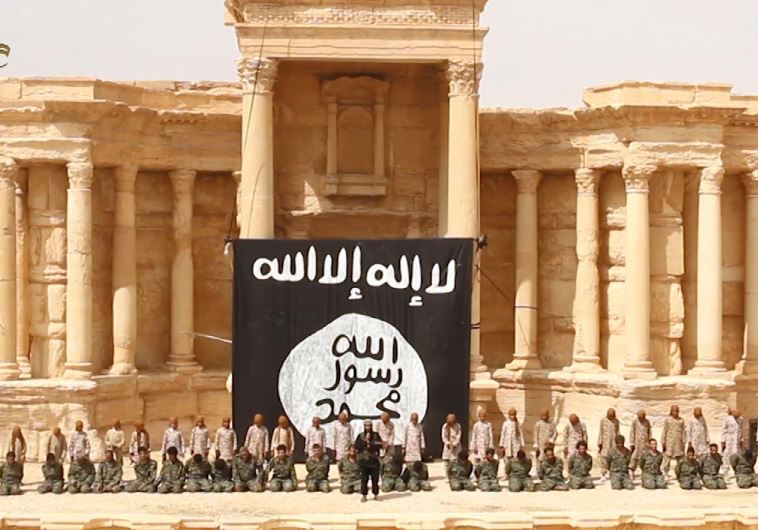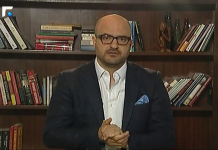The significance of arresting the 1996 Khobar bomber
Abdulrahman al-Rashed/Al Arabiya/August 29/15
Who would have thought that the head of the terrorist cell that carried out the Khobar bombing in Saudi Arabia would be arrested after being on the run for 19 years? Arresting Ahmed al-Mughassil in Beirut and handing him over to Saudi authorities in Riyadh has turned the page on one of the most important and dangerous security and political cases. This is because the operation was plotted in Iran, the victims were from the U.S. and the crime was committed on Saudi territories. This case also involved other countries such as Canada, Syria and Lebanon because of the presence of the suspects on their territories.
It is said that the violent attack in the summer of 1996 was so big that the explosion was heard from Bahrain. The force of the bomb caused a10-meter crater in the ground and destroyed one side of the Khobar towers. Nineteen U.S. forces were dead and about 500 others were injured. Perhaps it would have ranked the worst terrorist operation in the world, in terms of injuries, if the perpetrators did not put the bomb in a water truck, which reduced the force of the explosion.
When it comes to terrorist crimes, there are files that can neither be closed with the passage of time nor through political reconciliations
The bombing may have also been followed by a series of explosions planned by the Iranians in Saudi Arabia in 1996, if a customs agent did not stop a truck crossing the border from Jordan to Saudi Arabia, because he suspected it being too low on the ground, indicating it contained something heavy. When inspected, they discovered huge quantities of explosives, thwarting other planned operations.
The guns hired by Iran
Those who were engaged in the terrorist operations, whether Saudi or not, were merely guns hired by Iran for political purposes. Iran would eventually get rid of them at a later stage. Syrian authorities got rid of another wanted Saudi man in the terrorist cell, after Saudi security services discovered his whereabouts, two months after the bombing. When Saudi authorities asked the Syrian authorities to hand him over, they denied his presence at first and later claimed that he committed suicide in prison by eating soap… Well, nobody believed that story. Later on, Syrian authorities handed over another wanted Saudi man who was in hiding there, and a third was later handed over in Lebanon.
When it comes to terrorist crimes, there are files that can neither be closed with the passage of time nor through political reconciliations. The perpetrators will be pursued no matter how far they get or what regime is protecting them. The regimes that hired them to kill, will sell them at the appropriate time later on.
It is Iran that has expanded the concept of modern state terrorism since the early 1980s. It used it as a key tool in its foreign policy to blackmail and threaten forces and various governments in the Middle East and beyond. The assassinations of significant figures in Lebanon after 2005 were part of a Syrian-Iranian policy to impose Iran’s project in Lebanon and the region. It initiated its plan by kidnapping westerners in Lebanon in the 1980s. During the decade that followed, Iran was behind the bombings in France and South America. When we put Iran’s numerous attacks within the framework of its stated policies, we wonder if it has now reached its goals.
But in fact, Iran has not succeeded in achieving anything important, as it was not able to change regimes, or even influence them and force them to alter their policies. This is with the exception of Lebanon, which has always been an easy ground for Iranian activities, and of course, Tehran’s ally – the Syrian regime. Violence has failed to achieve any significant accomplishment for Iran. Its policy has resulted in the presence of U.S. and other western forces on Gulf waters, while they wanted them out of the region. This is what led to an increase in Iran’s isolation and misery.
Do refugees have a place in the paradoxical social media scene?
Yara al-Wazir/Al Arabiya/August 29/15
The world of social media is a complicated one. Many in Middle East credit it with the Arab uprisings of 2011 and while the revolts may not have produced democracy, they have surely produced hundreds of thousands of refugees. In some cases, the same tool used for freedom is now being used to hurl abuse at refugees.
Online abuse against refugees is not something to which we can turn our backs to – it’s a serious concern. Although Palestinian refugees have existed in the region, and around the world, for decades, they have already adapted and assimilated into their communities. For decades, communities have not had to deal with the notion of “new” refugees in the same magnitude we are seeing now.
Online abuse against refugees is not something to which we can turn our backs to – it’s a serious concern
People around the world now have to deal with this notion, and online hatred is not making anything easier for those who have already lost their homes and belongings. The danger with this online hate is that it instigates more hate, and instils a culture of rejection of foreigners. This xenophobic rhetoric should come to an end now.
Online negativity towards the situation does not only impact the refugees from a psychological standpoint, but also puts their lives in danger.
Disappointingly, public criticism of racist rhetoric on social media is not substantial enough for social media giants to react. It seems that Germany has felt the issue of refugees hit home – literally. As well as announcing that they are expecting 800,000 refugees to make their way to Germany in the coming year, this week the German government issued a statement calling on Facebook to act to limit racist posts.
While the public may not always be able to provoke social media giants to change their ways, the public can bring together all the positive influencers and inspire them to collaborate. After a photograph of a Palestinian-Syrian refugee carrying his sleeping daughter over his shoulder while he sold pens in Beirut’s heat went viral, the public responded. The strong solidarity inspired the photographer to set up a crowd-fund and raise over $5,000 in the first 30 minutes. The campaign has now reached over $70,000 in just 24 hours. What is most inspiring is that the refugee photographed, Abdul, doesn’t want to keep all the money to himself, but he wants to share it with other refugees in need.
The two different sides of how social media has decided to deal with the refugee crisis show the true dichotomy that exists within society. On the one hand, a society’s natural instinct is to be protective its land and reject foreign intrusion. It is like the human body when it experiences a foreign organism in the bloodstream. On the other hand, there are those who realize that not only must we adapt to the changes that the political world has imposed on us, but rather help these organisms thrive.




















